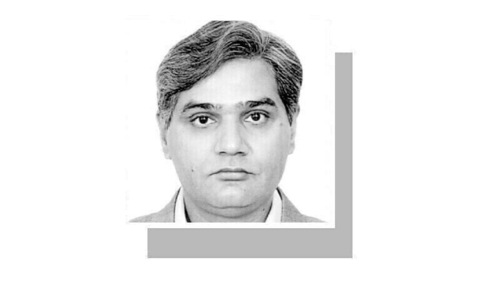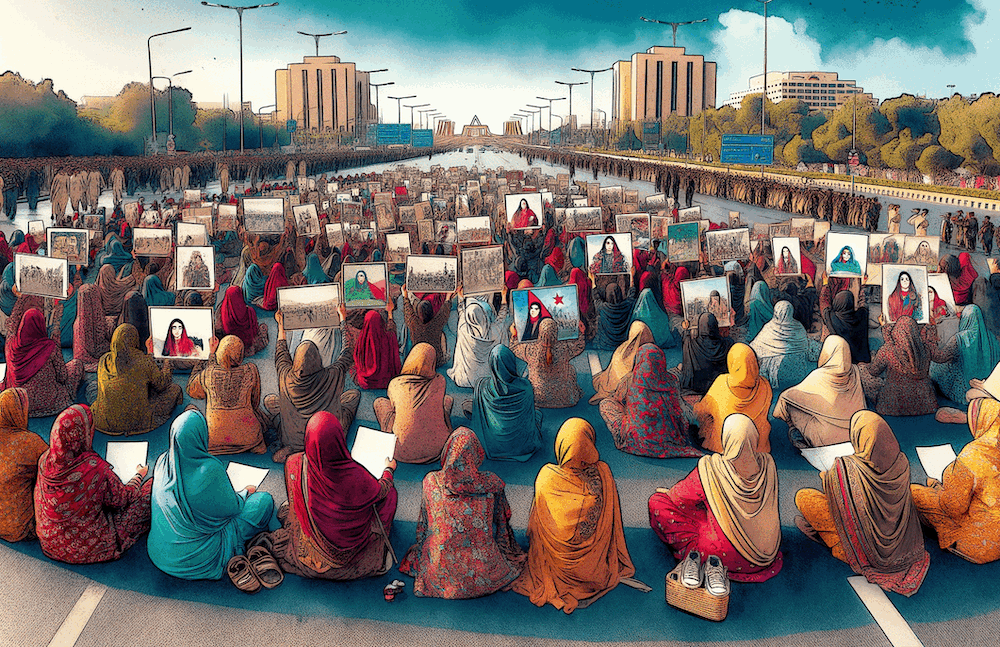THERE comes a time in the life of nations when citizens start to feel that the social contract between them and the state is on the verge of collapse. What holds them together is the national purpose, postulated through constitutional frameworks and based on the rule of law, justice and equity.
I feel very despondent and disappointed after a recent visit to Balochistan where the state seems to have lost its narrative of national cohesion due to the follies of those who wield actual power in the province. The sense of despair is so palpable that one starts to lose hope in a peaceful and prosperous future for this land of great promise.
As a police officer, I served in Balochistan for almost five years as superintendent/ senior superintendent in the early 1980s, and as inspector general in 2007. Both tenures were under the military eras of Gen Ziaul Haq and Gen Pervez Musharraf. In fact, Balochistan has mostly been under direct or indirect, but overt, military rule. The early 1980s witnessed the post-1970s Bhutto-era counter-insurgency development phase as well as the post-1979 Soviet invasion of Afghanistan. The gun culture prevailed. The state was fully involved in promoting jihad as an instrument of proxy war between the US and Soviet Union.
Every other day in Quetta, there were bomb blasts and acts of sabotage against state institutions. The police bore the brunt as the front-line law-enforcement agency. My nights were spent on city roads trying to enhance police vigilance against saboteurs and some criminal elements amongst the Afghan refugees. New colonies like Pashtunabad were established by refugees who could not be confined to camps on the Afghan border areas of Pishin and Quetta districts. Additionally, the theocratic revolution in Iran in 1979 added another law-and-order dimension to the Shia-Sunni sectarian violence — another proxy war at our doorstep.
Such multidimensional challenges were faced by the then-military government through good governance and the infusion of massive development funds through the state machinery in the shape of the bureaucracy and security services, including the police, FC and army. Gen Rahimuddin was a tough governor and hard taskmaster. He ensured that civil service and police officers were posted on merit.
The lesson was this: respect the Baloch and trust the Pathan; they’ll never stab you in the back.
We served under three outstanding chief secretaries Sheikh Jamil Ahmed, Saleem Abbas Jilani and Savak Rustam Poonegar, and three outstanding IGs Dilshad Najmuddin, Syed Saadat Ali Shah and Kamer Alam. They ensured that the best officers were posted as deputy commissioners/ commissioners and district SPs/ DIGs. The cream of the DMG and PSP were called in from Punjab, Sindh and NWFP (KP) and posted to field assignments for top-class service delivery and effective law enforcement.
I spent four years from 1982 to 1985 in Balochistan as additional SP Quetta, SP Sibi (including Kachhi, Dera Bugti, Kohlu and Kahan) and SSP Quetta. We served with a sense of pride in a province that was recovering after a military operation and political turmoil. The people and tribal elders gave us respect and we cherished our time spent in remote regions. We were far away from home but never felt unwelcome in the lands of the proud Baloch and Pakhtuns. The lesson we learnt and propagated to those in the corridors of power in Islamabad and Rawalpindi was this: give respect to the Baloch and trust the Pathan; they will never stab you in the back.
Balochistan in the first decade of the 21st century was in the even more severe grip of our military establishment under Musharraf. The West’s ill-conceived war on terror resulted in militancy, violence and mayhem, particularly near the Pak-Afghan border, and generally across Pakistan, with Karachi becoming a haven for militant groups.
Balochistan faced another phase of insurgency that intensified with the killing of Nawab Akbar Bugti near Kohlu on Aug 26, 2006. Prior to that, the issue of enforced disappearances had created discontent. Dr Allah Nazar, a Baloch student leader from Turbat and a gold medallist from Bolan Medical College Quetta, was picked up from Karachi in 2005. His brother was killed in illegal custody. He became a dissident and formed the Baloch Liberation Front, launching attacks against state institutions from near Turbat on the Pak-Iran border. This is when the leadership of Baloch dissidents passed on from sardars like the Marris, Mengals and Bugtis to the lower-middle- and middle-class youth.
The policy of persecution has led another young doctor Mahrang Baloch of Kalat to capture the imagination of the Baloch youth. Her struggle started when her father was found murdered two years after his enforced disappearance. The active participation of women is a unique feature of the movement. It is a radical departure from the Baloch culture and has pitted women (symbols of honour and the custodians of homes and hearths) directly against the state.
The matter is no longer in the hands of the Baloch nationalist political parties that have become irrelevant. This is the direct result of the massive rigging carried out by the deep state in the Feb 8 national elections. The people of Balochistan are angry at the blatant misuse of authority and corruption by those who conducted the polls. We are witnessing the erosion of the state’s writ.
As a patriot, I beseech the power brokers to pay heed to the alarming situation in Balochistan. They must distinguish between the bullet and ballot. They must abandon their barrel-of-the-gun tunnel vision and open all channels of communication with Balochistan’s disgruntled youth.
To avoid a total meltdown, immediate course correction is needed. The results of the fraudulent Feb 8 polls must be scrapped, and new fair and free elections held under an impartial ECP. Let power be transferred to the genuine representatives. A caretaker government comprising persons of known integrity and credibility must be set up to ensure good governance and impartiality. Above all, let us stop tinkering with the Constitution and laws. And those in position of authority should neither seek nor be given an extension in their tenures.
The writer is a former inspector general of police.
Published in Dawn, August 24th, 2024















































Dear visitor, the comments section is undergoing an overhaul and will return soon.